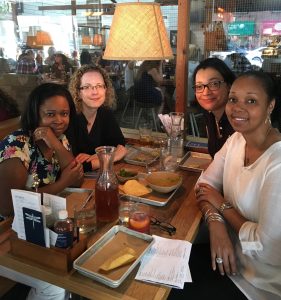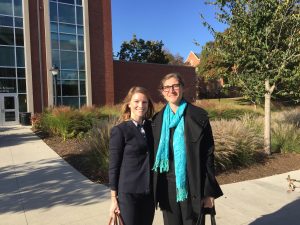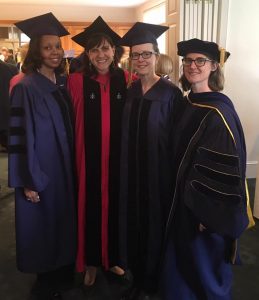EDLR alumnus and adjunct professor with UCAPP, Paul Freeman shares his thoughts on how to improve school leadership in Education Week.
Ed.D.
Staying in Storrs: Ed.D. Alumna Joins PK-3 Leadership Program
The University of Connecticut’s Department of Educational Leadership is fortunate to have well-connected alumni who continue to work with the university post-graduation or who have returned after years of work in diverse professional settings. The “Staying in Storrs” series highlights our talented EDLR program alumni and the work they are currently doing with UConn. This feature focuses on the PK-3 Leadership Program and Ed.D. Program.
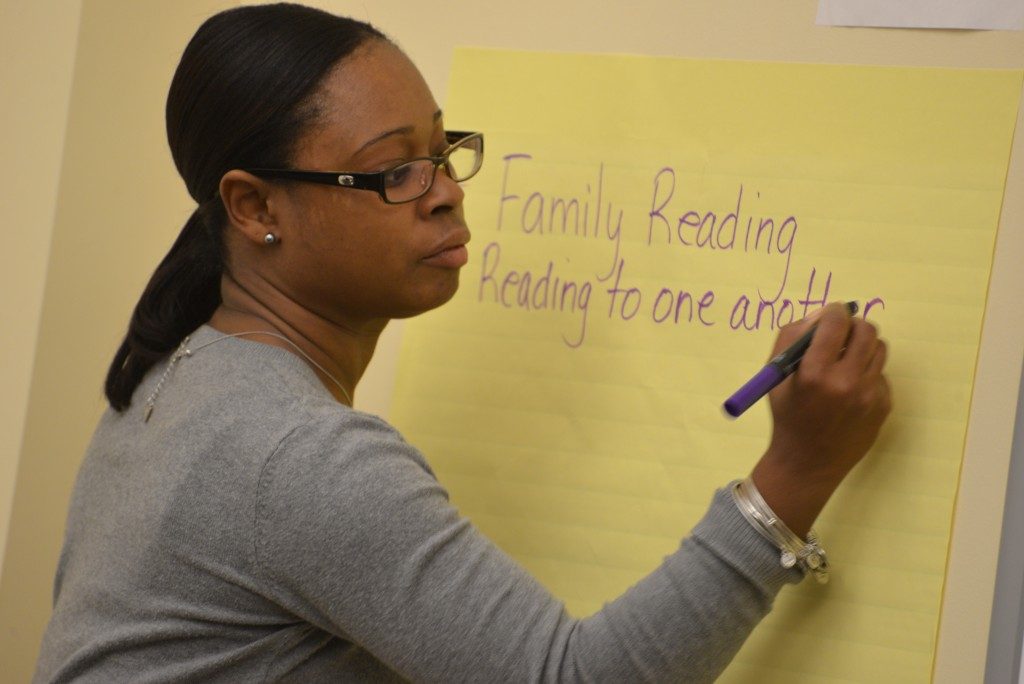
This March, Dr. Tayarisha Stone-Batchelor, Principal of Rawson STEAM School in Hartford, CT, will return to her alma mater at the University of Connecticut to co-facilitate the latest module for the PK-3 Leadership Program. Stone-Batchelor will be teaching alongside her Ed.D. classmate and returning PK-3 instructor, Dr. Roszena Haskins.
The Leading for Equity, Excellence, and Early Success module focuses on the critical components of leadership inside schools, the community, and across government and private agencies. Stone-Batchelor’s experience in the education field is extensive and includes a doctorate in education from The Department of Educational’s Ed.D. program. She graduated in 2017, and during her time as a student was actively involved with her cohort, which enabled her to strengthen her leadership skills by working with different students both inside and outside of her classroom experiences. She shares the most important part of being a leader is being able to be collaborative.
“To be successful in partnerships, it is imperative to have people working together, listening to other voices, and most importantly, being open to hearing other views.” – Tayarisha Stone-Batchelor
Stone-Batchelor used the strong leaderships skills she developed while in the Neag program to build and sustain positive relationships like the one with EDLR’s Husky Sport Program, an in-school and after-school program geared towards engaging Hartford youth through healthy nutrition, positive life skills and physical literacy.
In addition to her work and experience at UConn, Stone-Batchelor has been the principal of Rawson Elementary School in Hartford for the last 8 years. She was interested in working in an urban district to apply her expertise in developing a new model that would ensure all students have equal access and can compete for future jobs. As the principal, Stone-Batchelor strives to give her students STEM opportunities that fully immerse and engage them. Stone-Batchelor’s efforts towards improving urban schools goes hand in hand with the passion she has for using her platform to become a voice for minorities. In February of 2019, she was recognized by the Voices of Women of Color earning the Trailblazer award for providing Women of Color with leadership skills that lead to employment opportunities and success in their communities.
Because of Neag’s integral role in her success as an administrator, Stone-Batchelor has decided to return to Storrs. She hopes to give others the same experience she had, share what she has learned, and encourage and inspire others who undecided on their career path. She says that she made the decision to come back and teach at Neag because she sees that education has an impact on students and she wants to be a part of it. Specifically, Stone-Batchelor is excited to work with adult leaders, serving PK-3 aged students.
What sets this program apart from others, says Stone-Batchelor, is that Neag’s PK-3 program uses modules that bring together an expert panel as a means to incorporate all perspectives and create a bigger picture for educators. She believes it is important to expose educators to strategies that she has picked up in her time working in an urban district and she plans to implement the whole-child perspective which focuses on considering the child’s family as well stating,
“We’ve danced around the achievement gap for over a decade now,” she says. “We need to look at programs that partner with families early on so that we can break down the barriers early.”
Throughout her career, Stone-Batchelor has always kept a certain question in mind: how do we sustain what we have built so far and make it better? As she takes on this new role as PK-3 instructor, Stone-Batchelor says she finally hopes to be able to answer that question.
Student-Professional Feature: Diana Kelley
In Higher Education, it is not uncommon for students to balance their studies with a full or part-time job. Many students enrolled in the programs of the University of Connecticut’s Department of Educational Leadership (EDLR) are not only students, but working professionals in the field. The “Student-Professionals” series highlights these hard-working student-professionals and how they balance their responsibilities. This feature focuses on a student-professional in the Ed.D. program.
For Diana Kelley, a student in the Department of Educational Leadership’s Ed.D. program, balance is key: in addition to her studies, she works as the Director of Special Education for Glastonbury Public Schools.
Kelley’s path in the field of special education began when she was a busy stay-at-home mother. As her children started to get a little older, she was ready to rejoin the workforce and decided to go back to school to become a paralegal. At the same time, she got a job as a special education paraprofessional. She found that she greatly enjoyed working with children in a professional setting and was particularly interested in special education. Education, she realized, might be the right career for her. As a result she stopped her paralegal studies and transferred to Central Connecticut State University (CCSU) to complete her teaching degree.
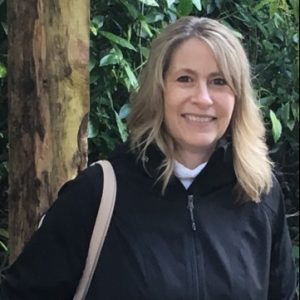
Managing the multiple and often competing demands of work, school, and family was a challenge as she completed her degree. “I would take my schoolwork to my kids’ sports games,” remembers Kelley. Upon successfully completing her bachelor’s degree, she started working as a special education teacher at Gideon Welles School in Glastonbury, CT. In that position, she also took on numerous building-level leadership roles, including serving as a team leader and serving on the Teacher Administration Liaison Committee. Her interest in leadership led her back to CCSU to complete a master’s degree and then to Sacred Heart University to earn an administrative certificate. When the opportunity arose, Kelley took a position as Special Education Supervisor at Glastonbury High School. When the Director of Special Education position for Glastonbury Public Schools opened up several years later, Kelley applied, and she has been in that role ever since.
For Kelley, the decision to pursue an Ed.D. was multifaceted. “I like being in school; learning about the most current practices and research is very helpful in my career,” she says, adding that earning a doctorate has always been a personal goal as well.
She chose UConn’s Ed.D. program for its proximity, affordability, and cohort model, which she says is very important to her. “The cohort is very supportive; it helps everyone stay connected and hold each other accountable,” she says. “And from a networking standpoint, it’s wonderful to get to know people and understand where they’re coming from.”
At this point in the program, Kelley’s research largely focuses on teachers’ beliefs and attitudes about students with disabilities, and she intends for her research to have real-world impact. “I want to find out things that will help guide me and my staff in terms of best practices to support students and teachers,” she says. “The growth mindset is important to me: believing that all students can learn.”
Being a student-professional can certainly be a challenge, says Kelley. Her job is demanding and she is sometimes exhausted by the time she gets home at the end of the day, which makes hitting the books for her program difficult.
While it can be difficult at times, Kelley says being a student-professional is also uniquely rewarding. “I like being able to relate what’s said in class back to my job,” she says. “It helps me keep my practice current and relevant, and it helps me provide useful professional development for my staff.” Plus, Kelley adds, the busyness of her schedule actually helps her appreciate the calmer moments. “Sometimes it makes me appreciate being in the moment more.”
“Balance and prioritization is key,” says Kelley. “My advice is to stick to a schedule and have some structure. I try to get my schoolwork done on weekends and one night a week. And it’s so important to carve out time for yourself: some time to go to the gym, whatever it might be. Sometimes I just take one night and say ‘I’m not going to not think about school or work tonight.’”
Dr. Alan Addley Named CT’s 2019 Superintendent of the Year
Congratulations to ELP and Ed.D. alumus, Dr. Alan Addley on earning Connecticut’s Superintendent of the Year, 2019. CAPSS recognizes him for his hard work and dedication.
Staying in Storrs: Ed.D. Alumna, Dana Ziter
The University of Connecticut’s Department of Educational Leadership (EDLR) is fortunate to have well-connected alumni who continue to work with the university, post-graduation or some who have returned after years of work in diverse professional settings. The “Staying in Storrs” highlights our talented EDLR program alumni and the work they are currently doing with UConn. This feature focuses on the Ed.D. Educational Leadership Program.
Dana Ziter is an academic advisor in the UConn School of Engineering for the Computer Science & Engineering department. She is not only an alumna who has “Stayed in Storrs” upon completing her degree, but she concurrently held a full-time position at the University during her tenure in the Ed.D. Educational Leadership Program.
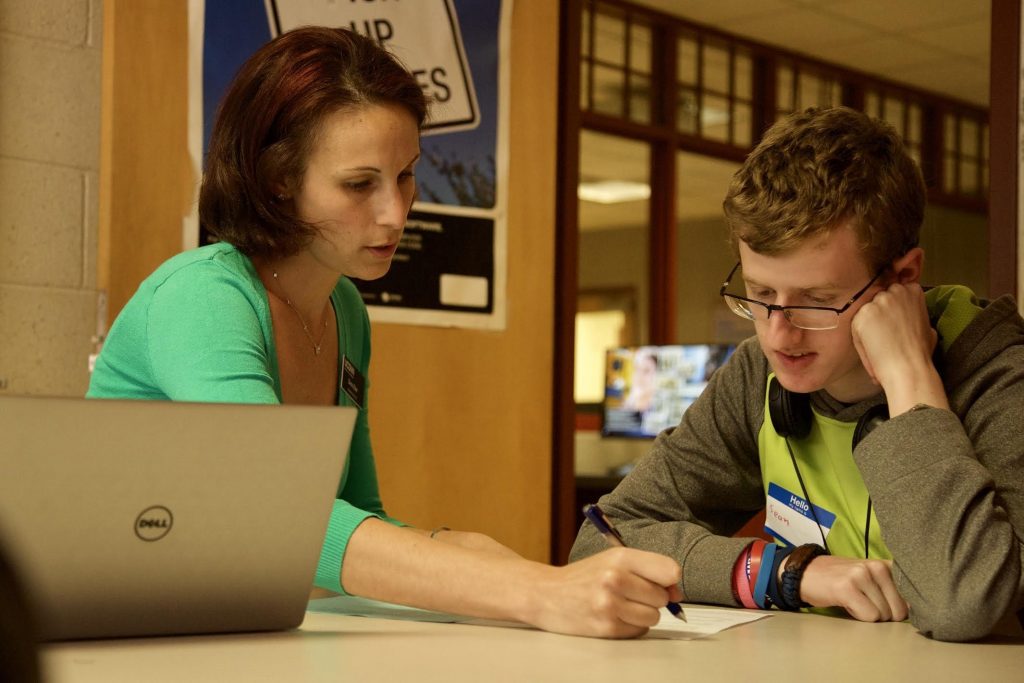
Ziter began her professional career at UConn in June of 2014 as a Program Assistant with the School of Engineering. In 2015, she began her academic career with the university– entering into the Ed.D. Program. Approximately a year into the program, she moved into her current role as an advisor after she got to know the advising team through their use of the Computer Lab during orientation sessions. One of the previous advisors, who was leaving, recognized Ziter’s potential and encouraged her to apply for the position. After the successful defense of her capstone in 2018 and completion of the Ed.D. program, she was prepared for increased responsibility, and received a promotion to an Academic Advisor II status. She is confident that her doctoral degree has prepared her to take on larger leadership roles and continue an upward career trajectory.
Balancing student life with a professional career at the University was not always an easy feat, but through the support of her program cohort and the Educational Leadership faculty, she excelled in her coursework and research. She specifically credits Dr. Jennie Weiner, who was a consistent source of reassurance that she could be successful in both the program and her research. She also thanks her direct supervisors, George Assard, who supervised her during her role as a Program Assistant, as well as her current supervisor, Whitney Losapio, for supporting her career growth in every way possible. Additionally, her current advising teammates were critical supporters– allowing her to interview them for specific projects and use some of their day-to-day situations as part of her coursework and research.
“Both working in an institution and experiencing life as a student has provided me with priceless experiences as a leader, team member, student, facilitator, and most importantly as a listener. Many of our students just need to be heard and it has taken some diligent work on my part to be patient in listening– not just immediately jumping to possible solutions.” -Dana Ziter
Ziter was able to integrate her professional career with her capstone research as part of the Ed.D. Program, focusing on revising the University Academic Probation protocol and completing a research project on student grade outcomes in correlation with the revision. For this project, she used a regression discontinuity model to analyze the data– a complex model that she never imagined she was capable of. During her time in the program, she also got multiple opportunities to present her work on advising struggling students. She presented at the Region 1 NACADA CT Drive-In conference and annual UConn faculty advisor conference.
She is extremely thankful for the opportunities that her research provided as it allowed her to build connections with advisors and faculty members throughout the university. In working with the University Director of Advising, Dr. Katrina Higgins, on her capstone research she has been able to take on additional projects for the department, bringing insight from her professional and academic career to solve a diverse array of problems.
Overall, Ziter’s experiences both as a student and a professional have been extremely valuable, and she looks forward to the growth opportunities at UConn that her Ed.D. degree has made available.
Cutaia Named Next Milford Schools Superintendent
New Haven Register (ED.D. alumna Anna Cutaia named superintendent of Milford Public Schools)
Roszena Haskins ’17 Ed.D.: Opening Doors to Opportunity
Neag (Alumna, Roszena Haskins Ed.D. ’17, featured)
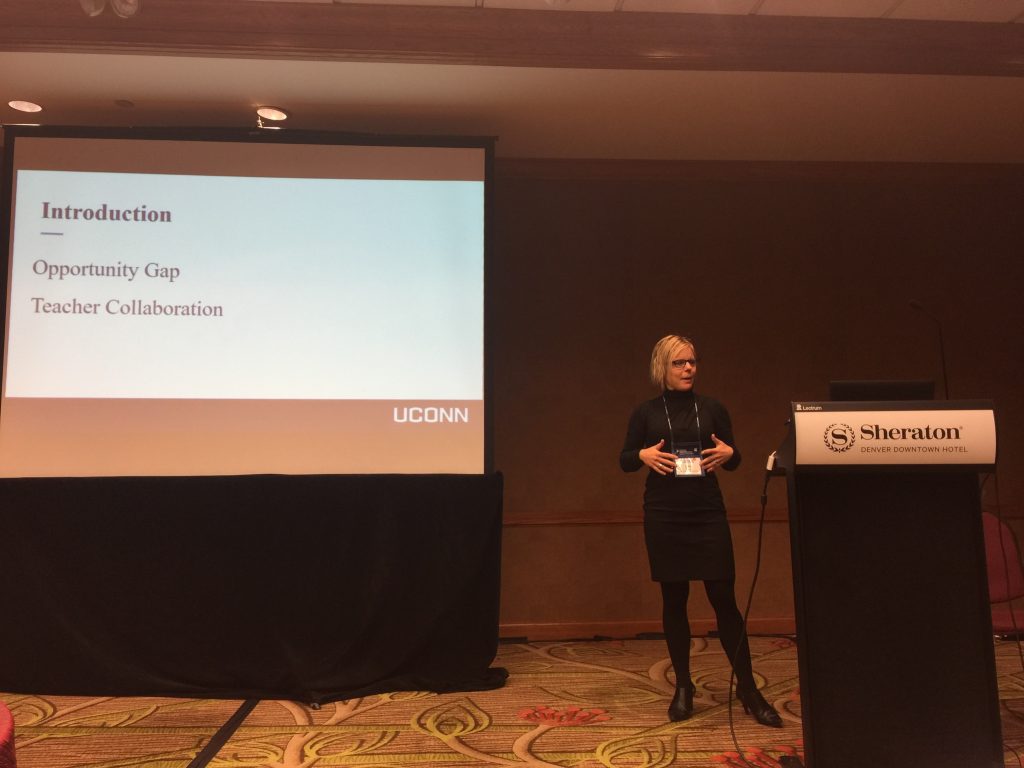
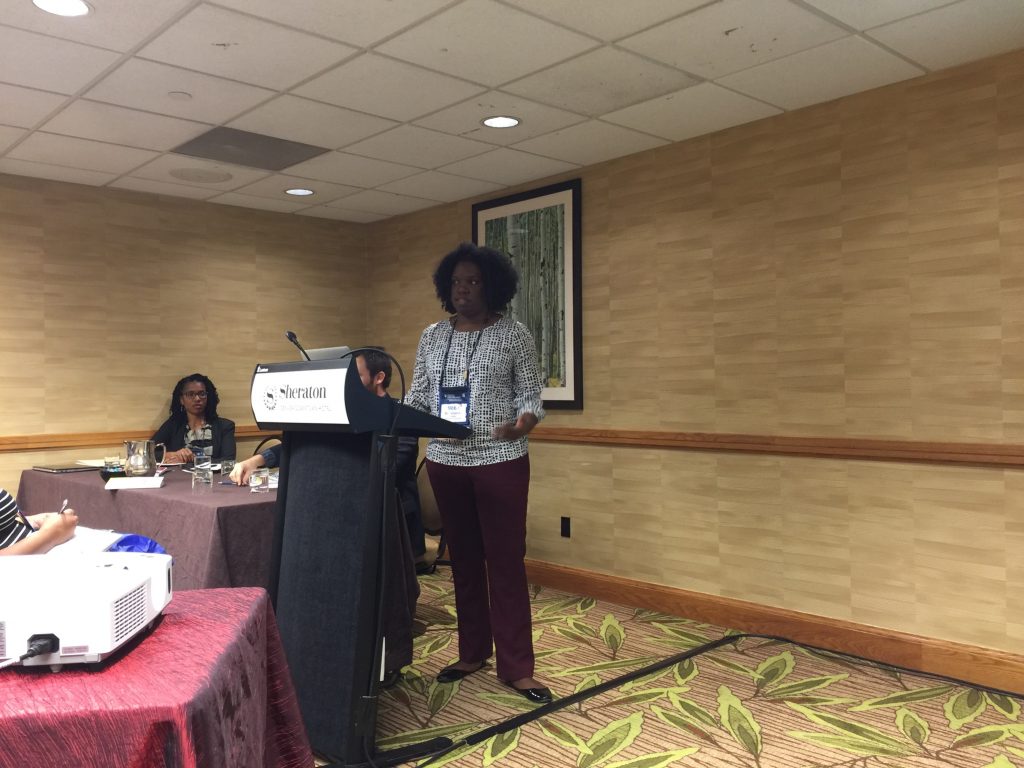
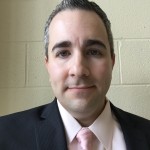 Anthony Mangiafico, member of the ’15 Ed.D. cohort, successfully defended his capstone proposal on September 27th. Anthony’s capstone seeks to center the narratives and experiences of Students of Color while currently pursuing their GED.
Anthony Mangiafico, member of the ’15 Ed.D. cohort, successfully defended his capstone proposal on September 27th. Anthony’s capstone seeks to center the narratives and experiences of Students of Color while currently pursuing their GED.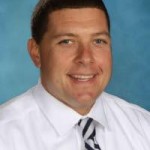 Scott Hurwitz defended his proposal in October 2017. His capstone research proposal examines the how and to what extent school leaders frame policy with a specific focus on Connecticut's anti-bullying policy. He will also study the factors that shape how leaders frame their policy messages.
Scott Hurwitz defended his proposal in October 2017. His capstone research proposal examines the how and to what extent school leaders frame policy with a specific focus on Connecticut's anti-bullying policy. He will also study the factors that shape how leaders frame their policy messages.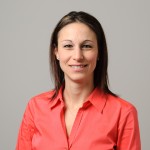 Dana Ziter, member of the ’15 Ed.D. cohort, successfully defended her capstone proposal on November 7th. Dana’s capstone assesses the impact of a new student advising protocol on UConn students currently on academic probation via a regression discontinuity design.
Dana Ziter, member of the ’15 Ed.D. cohort, successfully defended her capstone proposal on November 7th. Dana’s capstone assesses the impact of a new student advising protocol on UConn students currently on academic probation via a regression discontinuity design.